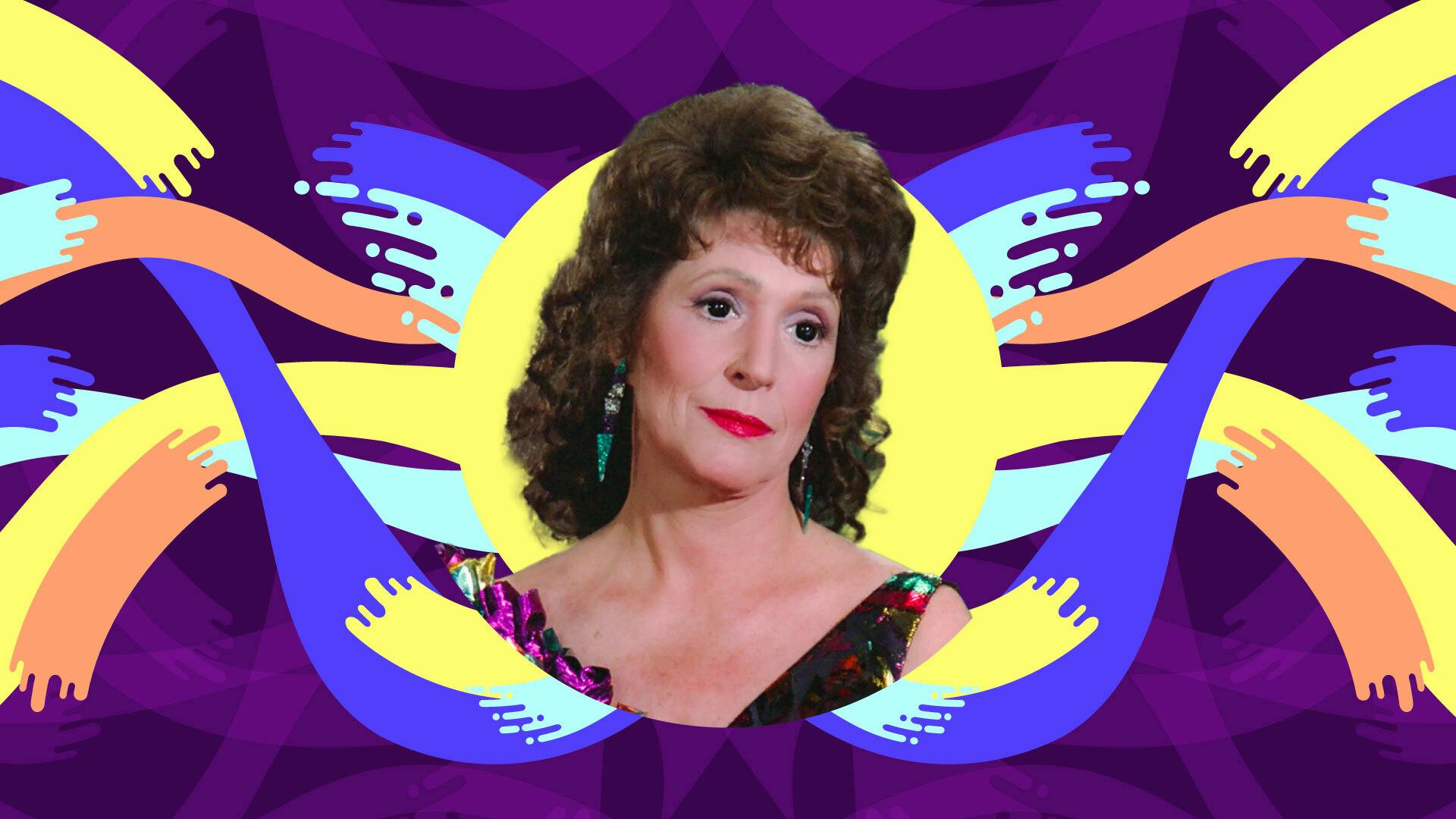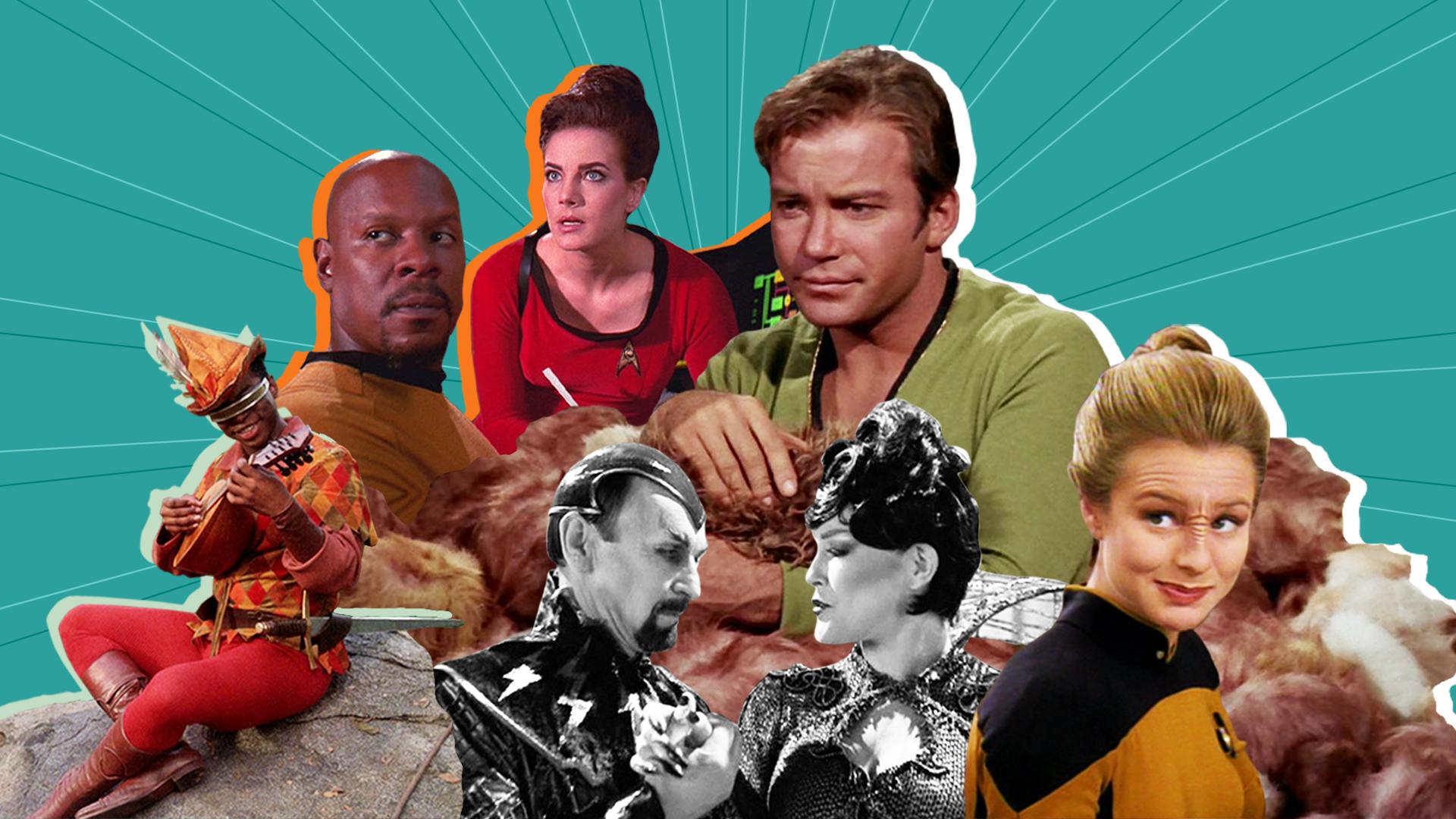Published May 15, 2023
Ishka of Ferenginar: Mother of a Movement
'Be more like Ishka and make sure the world sees your worth.'
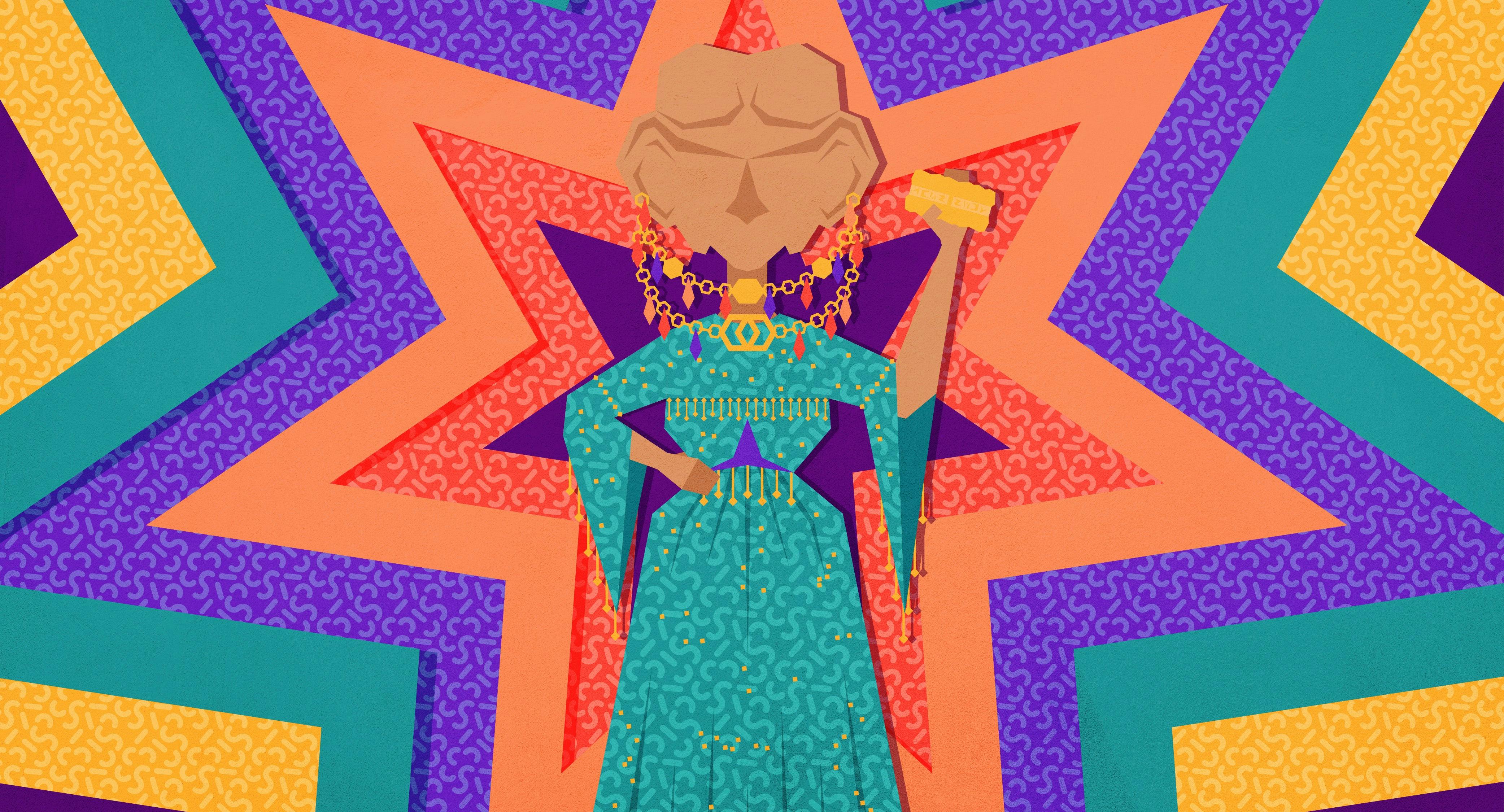
StarTrek.com
This Mother’s Day, as we celebrate those who have given us life and nurtured our growth, it’s only fitting that we also pay tribute to the preceding generations of women who fought — and continue to fight — for the female future. Feminists like Sojourner Truth, Simone de Beauvoir, and Audre Lorde are just a few figures whose ideas and fortitude helped shift the global perception of women’s rights throughout humanity. And I would like to proffer that Ishka of Ferenginar could easily be included among this pantheon of leaders.
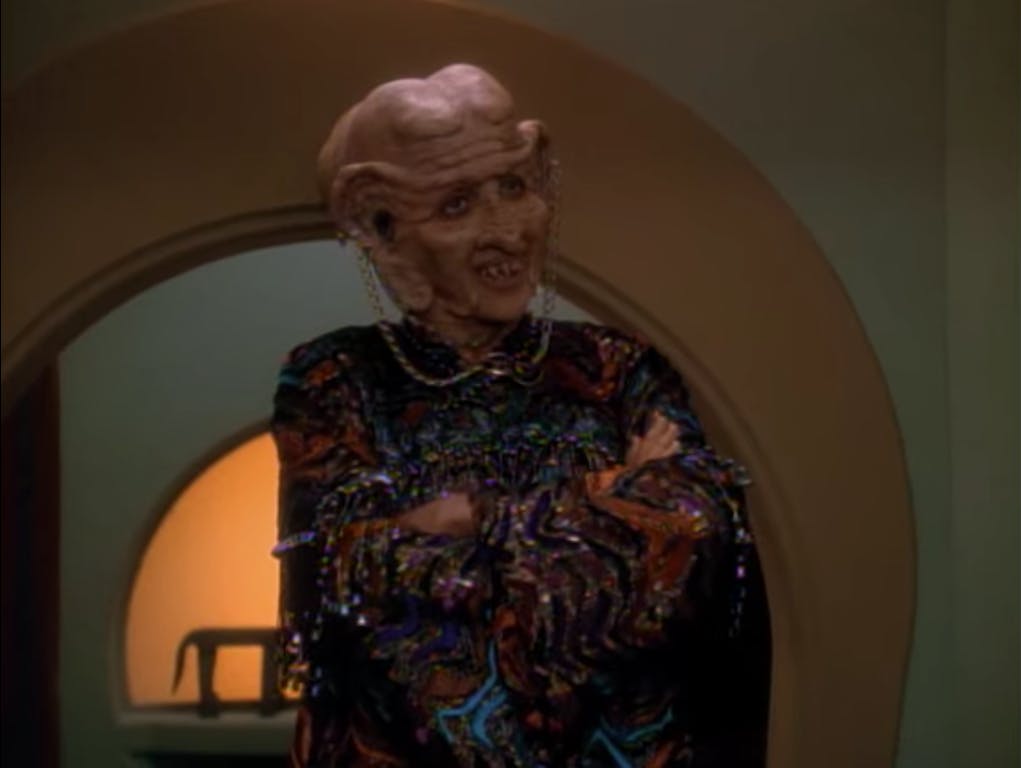
StarTrek.com
When you’re born into a community, society, or civilization that tells you things are only one way; it can be impossible to imagine that they could ever be different. Being able to envision change is difficult enough, but taking the necessary steps to be a force for change is a task few can accomplish — that’s exactly what Ishka did. She brazenly subverted the gender norms of her planet and fought for the rights and equality of Ferengi women. Not only did she shun every convention set forth by law, her unabashed attitude towards the men in her life — be it her sons, lover, or some political lackey — can serve as an example to us all.
To truly understand the obstacles of a feminist Ferengi, let’s take a look at the role of women in their society. They are a highly patriarchal culture who practice complete dominance over their women. They have loose views on morality and are primarily obsessed with the acquisition of wealth. On Ferenginar, women are forbidden to go out in public, travel, hold jobs, wear clothing, or participate in trade and commerce.
Now, you might think this to be fictional barbarism, but is it really all that different to challenges many women face today? For example, women in Qatar cannot travel without a male guardian, Indonesia has strict legal and social demands to wear clothing deemed Islamic, Kenya instills institutional barriers for women to hold matrimonial property, and 86% of women are absent from the workforce in Jordan. Though the scenarios amongst Ferengi might be part of a fictional world; the issues they represent are very much steeped in reality.
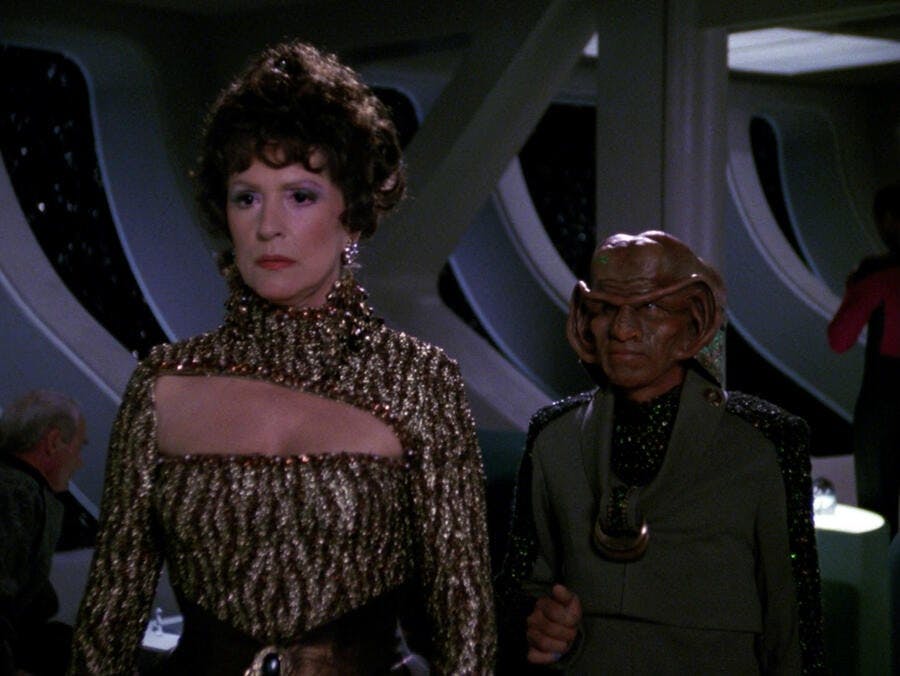
StarTrek.com
We see hints of Ferengi sexist attitudes littered through multiple series. In Star Trek: Enterprise's “Acquisition,” Ferengi raiders gas the ship and stack the unconscious crew women to sell on the slave trade market. In Star Trek: The Next Generation's “Ménage à Troi,” a Ferengi tries to purchase Lwaxana Troi and then proceeds to kidnap her when she rejects him. However, the series that delves the furthest into Ferengi culture is Star Trek: Deep Space Nine where we first meet Ishka.
In Season 3's “Family Business,” her sons Rom and Quark travel to their homeworld to face charges of “earning profit” that their mother has incurred. From her first appearance on-screen, she is defiant to her family and culture, wearing clothes and takes a sort of egalitarian approach to the whole situation. Her very attitude is revolutionary simply due to the fact that she cannot see the reasoning against gender equality, and so chooses not to abide by their rules. She does not listen to Quark when he demands that she disrobe; and even though she ultimately gives up a part of her profits to the Ferengi Commerce Authority, it is suggested that they do not know the true extent of her earnings.
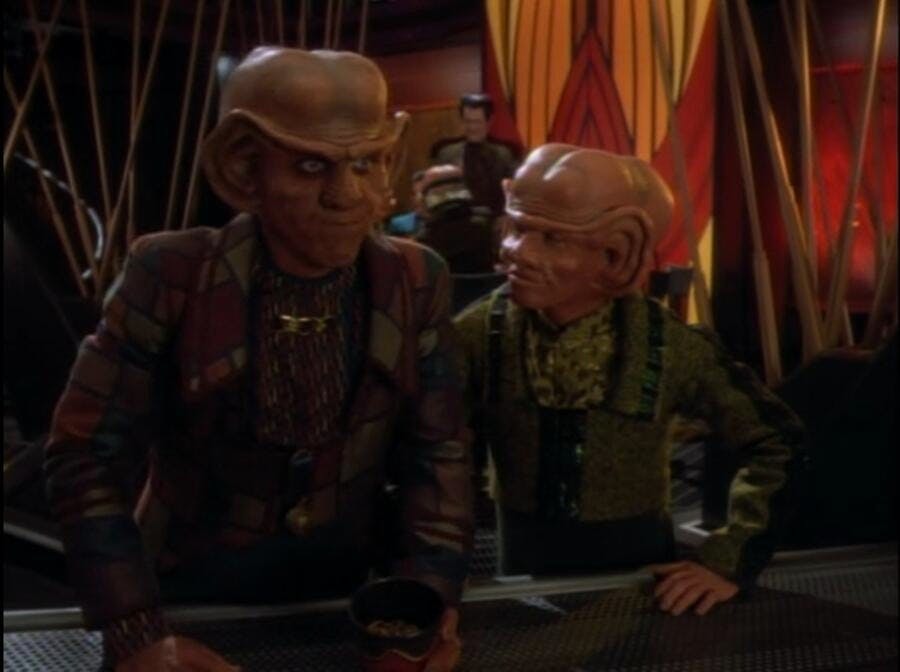
StarTrek.com
The idea that Ferengi women, though marginalized and suppressed, are just as talented and capable as their male counterparts is also explored in Season 2's “Rules of Acquisition'' when a female named Pel disguises herself as a man to be able to work. Ignorant of her true identity, Quark praises her ingenuity and business acumen. She advises him on how to increase bar profits, assists in trade meetings, and her advice is instrumental in obtaining an extended contact with the Dosi.
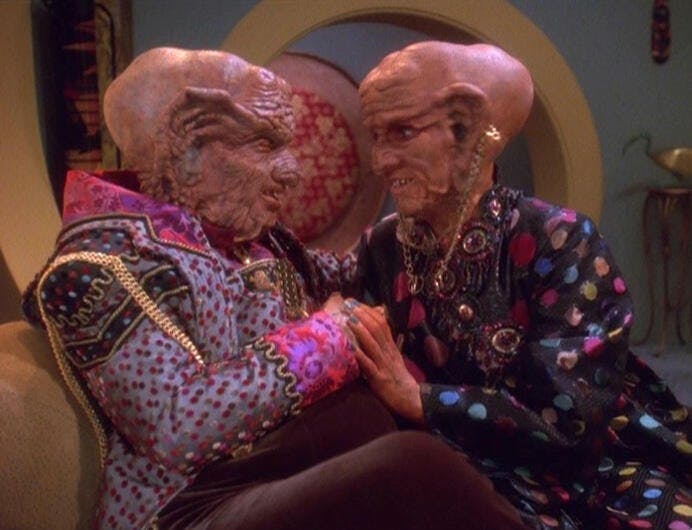
StarTrek.com
Ishka's next appearance is in Season 5's “Ferengi Love Songs'' where we learn about her romance with the Grand Nagus Zek, the de facto leader of the Ferengi. Through the episode, we learn that not only is she his lover, but also his senior financial advisor who is holding the world economy together. Historically, this type of soft power influence by female spouses is not unheard of. President Jonson’s wife, Ladybird Johnson is often credited as a political adviser who used her influence to champion Civil Rights and protect the environment. Similarly, Edith Wilson basically took on the role of acting President after Woodrow Wilson suffered a massive stroke.
Eventually, under Ishka's influence, Zek began reforming Ferengi society and in the Season 6 episode “Profit and Lace,” he amended the Ferengi Bill of Opportunities to allow women to wear clothing. This first step in granting rights to Ferengi women leads to Zek being deposed. Once again, it is Ishka who sets up a meeting with an important FCA commissioner to convince him about the benefits of the changes, and ultimately, Zek is able to keep his position.
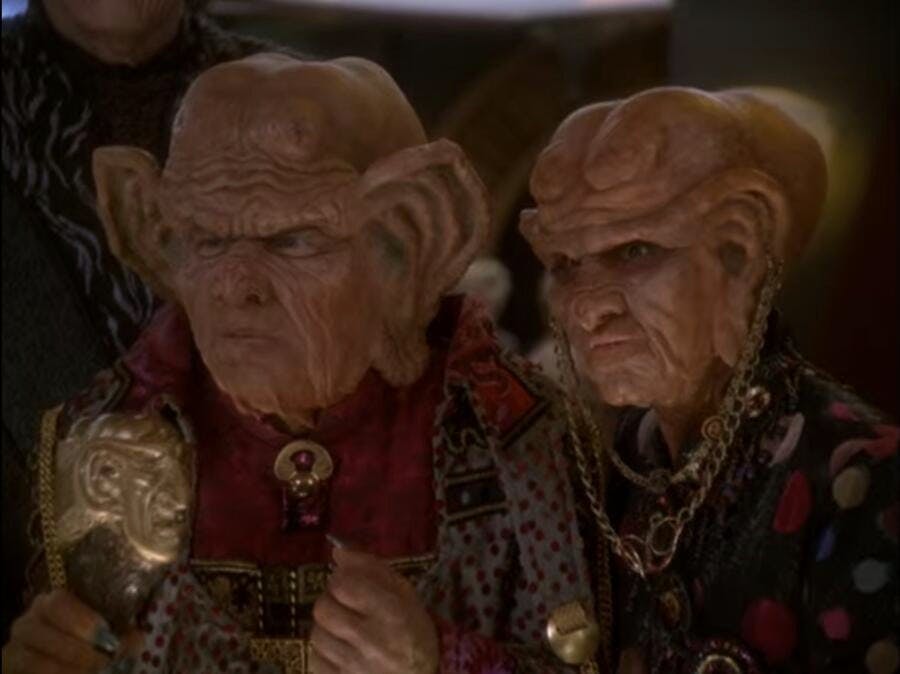
StarTrek.com
Eventually, after the Grand Nagus passes even more reforms, he and Ishka decide to retire. In the Season 7 episode "The Dogs of War," it is Ishka that chooses the new Grand Nagus, and picks her progressive son Rom. Instead of being a traditional Nagus however, Rom’s role is adjusted to “consult” over the new constitutional democracy that shares power for the benefit of all Ferengi. Through her intelligence, cunning, skill, and determination, Ishka made structural reforms that benefited her entire society.
Though progress has been made in our society, events such as the #MeToo movement and the recent muder of Sarah Everard in London illustrate how our culture still demands sacrifices from women instead of forcing men to change to end violence and oppression. Ishka is an example of female empowerment to those undervalued in their communities. Even though her world tried to stifle her, she didn't let that stop her from creating a life that embraced her worth and respected her value. So, I implore you to be more like Ishka and make sure the world sees your worth.
This article was originally published on May 9, 2021


